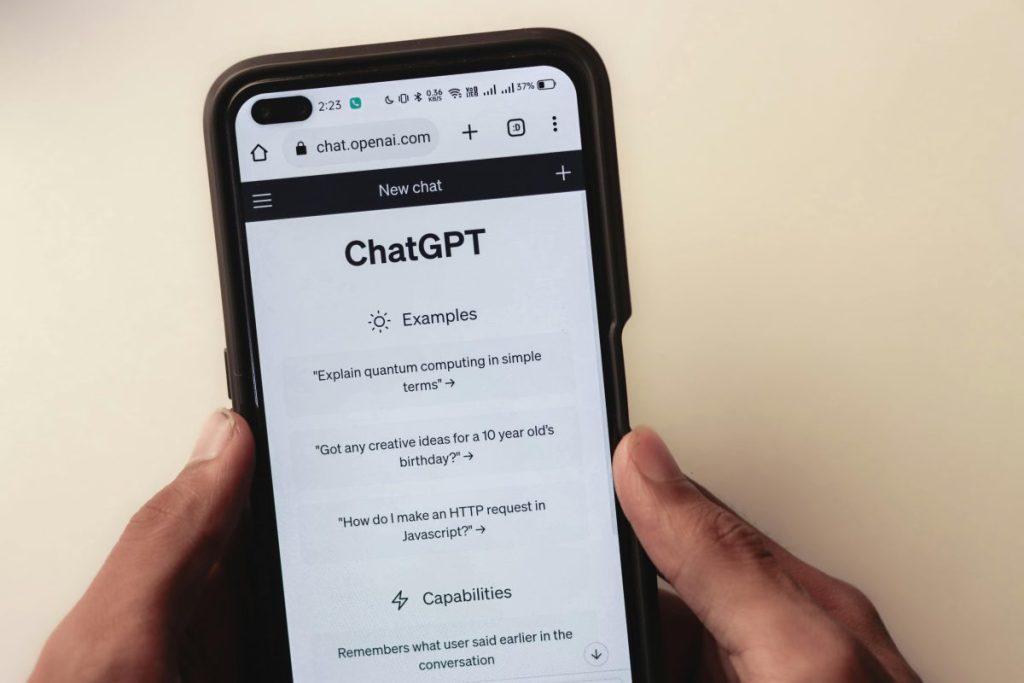The world of search engine optimization (SEO) is constantly evolving, and with the advent of powerful AI tools like ChatGPT, the landscape is shifting once again. In this article, we’ll explore the potential of ChatGPT as a keyword research tool and compare it to the industry-leading platform, Ahrefs. While Ahrefs remains a top choice for many SEO professionals, ChatGPT offers unique advantages that make it an attractive option for beginner bloggers and those on a tight budget.
Pricing and accessibility
One of the most significant factors that sets ChatGPT apart from Ahrefs is its pricing and accessibility. Ahrefs is a premium tool that comes with a hefty price tag, with plans starting at $99 per month for limited functionality. To access the full range of features, users need to invest at least $200 per month. For many bloggers, especially those just starting, this cost can be prohibitive. In contrast, ChatGPT offers a free version and a more affordable pro version, making it a more budget-friendly option for those looking to optimize their content for search engines.
Keyword difficulty and competition analysis
Another area where ChatGPT shows promise is in its approach to keyword difficulty and competition analysis. Ahrefs relies on a straightforward method of calculating keyword difficulty (KD) based on the backlink profile and referring domains of the top-ranking pages for a given keyword. However, this approach can sometimes lead to misleading results. For example, a keyword with a KD of 0 and a monthly search volume of 700 might seem like an easy target, but upon closer inspection of the search engine results pages (SERPs), it becomes clear that the competition is fierce, with high-authority domains occupying the top positions.
ChatGPT, on the other hand, can provide a more nuanced understanding of keyword competition by analyzing the content and context of the top-ranking pages. By generating questions and long-tail keyword variations related to a seed keyword, ChatGPT can help bloggers identify untapped opportunities and create content that addresses the specific needs and interests of their target audience.
Limitations of traditional keyword research tools
It’s important to recognize the limitations of traditional keyword research tools like Ahrefs and SEMrush. These platforms rely on historical data, meaning they provide insights based on past search trends and patterns. As a result, the keyword suggestions generated by these tools tend to be similar across the board, with many bloggers and content creators targeting the same set of keywords.
ChatGPT, in contrast, can generate fresh and unique keyword ideas by leveraging its natural language processing capabilities. By understanding the context and semantics of a given topic, ChatGPT can suggest long-tail keywords and questions that may not have been previously explored, giving bloggers a competitive edge in their niche.
Additional features and use cases
While keyword research is a core function of Ahrefs, ChatGPT offers a range of additional features that can benefit bloggers and content creators. These include:
1. Content ideation: ChatGPT can generate blog post ideas and outlines based on a given topic or keyword, helping bloggers overcome writer’s block and create engaging content.
2. Keyword clustering: By organizing keywords into topical clusters, ChatGPT can help bloggers create a more cohesive and comprehensive content strategy.
3. Internal linking suggestions: ChatGPT can analyze a website’s existing content and provide recommendations for internal linking, improving the site’s structure and helping search engines better understand the relationships between pages.
4. SEO optimization: In addition to keyword research, ChatGPT can assist with on-page SEO by suggesting meta descriptions, title tags, and header structures that incorporate target keywords and improve the overall readability and relevance of the content.
Validating ChatGPT’s keyword suggestions
While ChatGPT can generate a wealth of keyword ideas, it’s crucial to validate these suggestions using other tools and data sources. One effective approach is to use Google’s Keyword Planner, a free tool that provides search volume and competition data for a given set of keywords.
By inputting the keywords generated by ChatGPT into the Keyword Planner, bloggers can gain valuable insights into the potential traffic and competition associated with each keyword. This process can help refine the keyword list and identify the most promising opportunities for content creation.
Keyword research workflows with ChatGPT
To maximize the potential of ChatGPT for keyword research, bloggers can employ various workflows and prompts. Some effective strategies include:
1. Generating questions related to a seed keyword: By asking ChatGPT to create a list of questions around a specific topic, bloggers can uncover long-tail keyword opportunities and create content that directly addresses the needs and concerns of their target audience.
2. Extracting keywords from competitive sitemaps: By analyzing the sitemaps of high-ranking websites in their niche, bloggers can identify potential keyword gaps and opportunities for differentiation. ChatGPT can help by suggesting additional relevant keywords based on the existing sitemap data.
3. Creating topical clusters from scratch: For bloggers exploring a new niche or topic, ChatGPT can generate a comprehensive topical cluster, organizing keywords into main topics, categories, and subcategories. This approach can help ensure that the content covers all the essential aspects of a given subject matter.
4. Expanding existing keyword lists: If a blogger already has a list of seed keywords, ChatGPT can help fill in the gaps by suggesting additional relevant keywords and long-tail variations.
Case studies and examples
To illustrate the effectiveness of ChatGPT for keyword research, let’s look at a few real-world examples:
1. “Can dogs eat bananas?”: Starting with this seed keyword, ChatGPT generated a list of related questions, such as “Can dogs eat banana pancakes?” and “Can bananas cause seizures in dogs?” By validating these keywords using Google’s Keyword Planner, the blogger discovered several low-competition, high-volume keywords, like “Can dogs eat banana muffins?” and “Can dogs have banana pudding?”
2. Crypto mining: By asking ChatGPT to generate topics related to crypto mining, the blogger obtained a list of highly relevant keywords, such as “environmental impacts of crypto mining,” “beginner’s guide to crypto mining,” and “security risks of crypto mining.” The Keyword Planner revealed that many of these keywords had low competition and significant search volume, presenting valuable opportunities for content creation.
3. Earning money for moms at home: ChatGPT generated a list of 50 long-tail keywords related to this topic, which the blogger then validated using the Keyword Planner. The results showed numerous low-competition keywords with high search volume, such as “work from home mom jobs,” “jobs for stay at home moms 2023,” and “careers for stay at home moms.”
These examples demonstrate the potential of ChatGPT to uncover valuable keyword opportunities that may not be immediately apparent using traditional keyword research tools.
Combining ChatGPT with other SEO tools and strategies
While ChatGPT is a powerful tool for keyword research and content ideation, it’s essential to use it in conjunction with other SEO tools and strategies to achieve the best results. Some ways to integrate ChatGPT into a comprehensive SEO approach include:
1. Using Ahrefs or SEMrush for backlink analysis and competitor research: While ChatGPT excels at generating keyword ideas, tools like Ahrefs and SEMrush provide valuable insights into backlink profiles and competitor strategies, which can inform content creation and link-building efforts.
2. Leveraging Google Search Console and Analytics: By monitoring search traffic and user engagement metrics, bloggers can identify which ChatGPT-generated keywords and content pieces are resonating with their audience and driving the most valuable traffic.
3. Incorporating other on-page and off-page SEO best practices: ChatGPT should be used as part of a holistic SEO strategy that includes optimizing meta tags, header structures, and content formatting, as well as building high-quality backlinks and promoting content through social media and other channels.
Video
The future of AI in keyword research and SEO
As AI tools like ChatGPT continue to evolve and improve, their impact on keyword research and SEO will likely grow. Some potential developments and implications include:
1. More sophisticated content analysis and optimization: AI algorithms may become better at understanding the nuances of language, context, and user intent, enabling them to provide even more targeted and effective keyword suggestions and content optimization recommendations.
2. Increased personalization and localization: AI tools could leverage user data and location information to generate hyper-targeted keyword ideas and content strategies tailored to specific demographics and geographic regions.
3. Integration with other marketing channels: As AI becomes more prevalent across various marketing disciplines, tools like ChatGPT may be integrated with social media, email marketing, and paid advertising platforms to create a more seamless and data-driven approach to content creation and distribution.
While the full extent of AI’s impact on SEO remains to be seen, it’s clear that tools like ChatGPT are already reshaping the way bloggers and content creators approach keyword research and content ideation.
In conclusion, while Ahrefs remains a top choice for many SEO professionals, ChatGPT offers a compelling alternative for beginner bloggers and those on a tight budget. By generating unique keyword ideas, questions, and topical clusters, ChatGPT can help content creators uncover valuable opportunities and create more targeted, engaging content. As the world of SEO continues to evolve, embracing AI tools like ChatGPT and integrating them into a comprehensive strategy will be key to staying ahead of the curve and driving long-term success.









